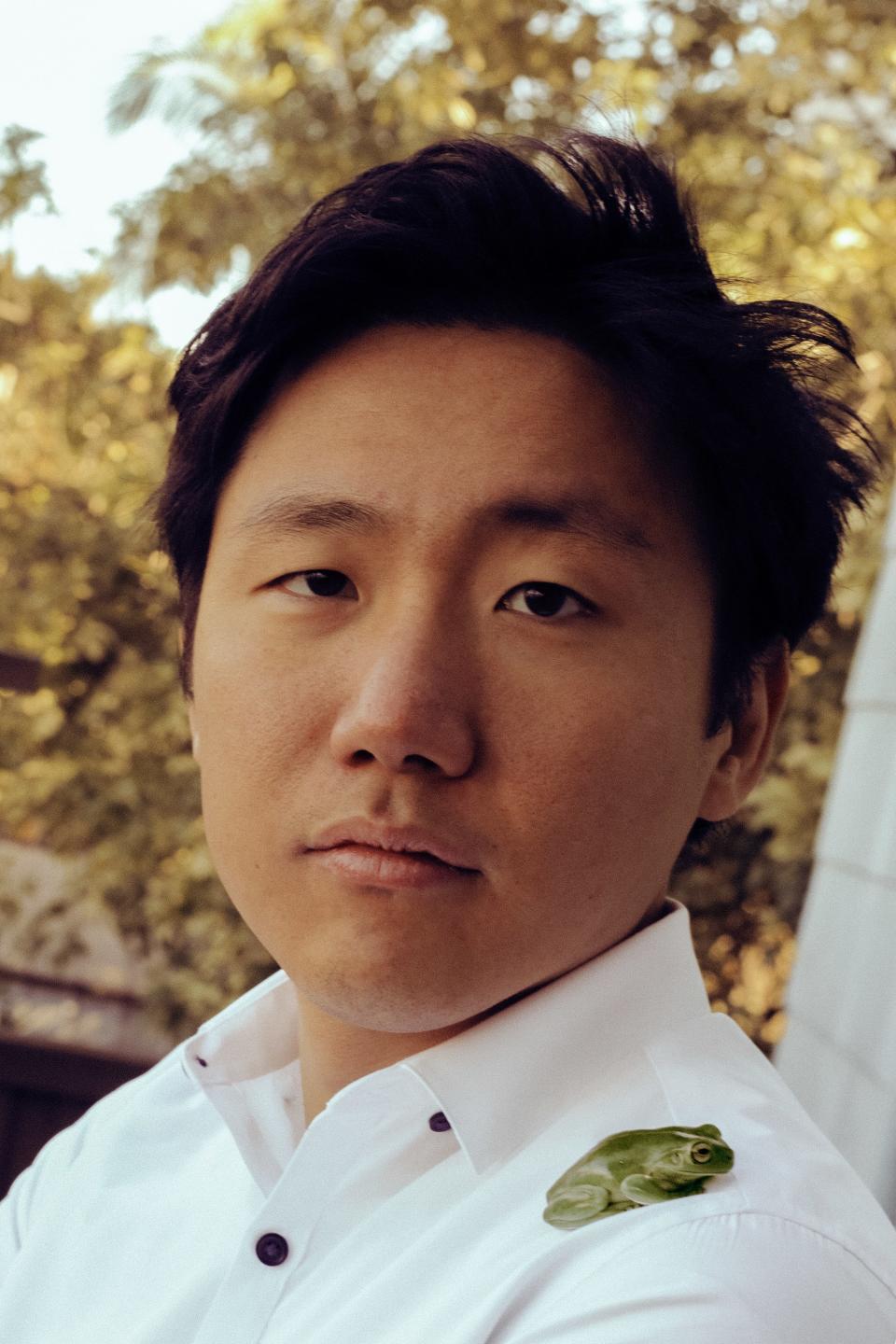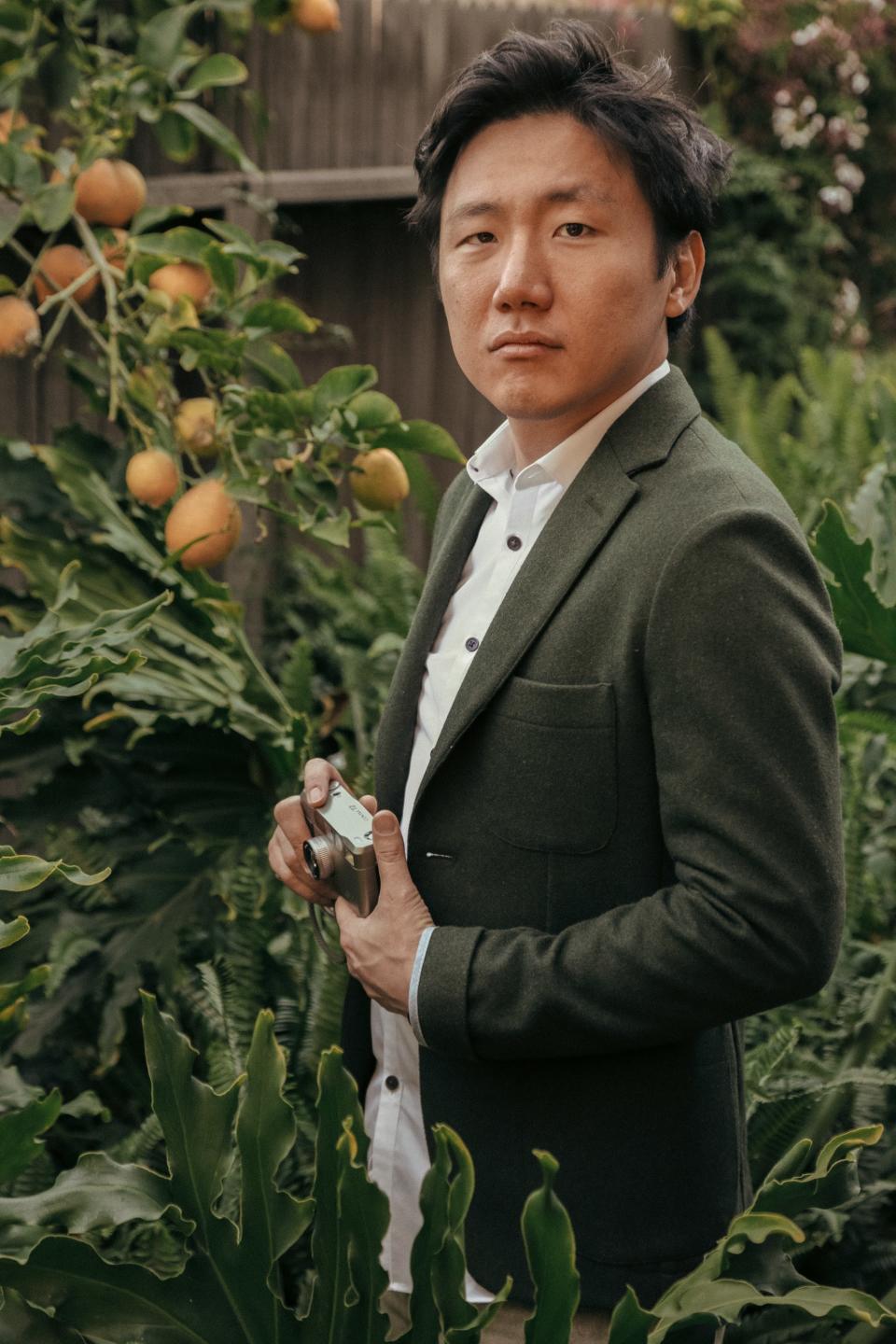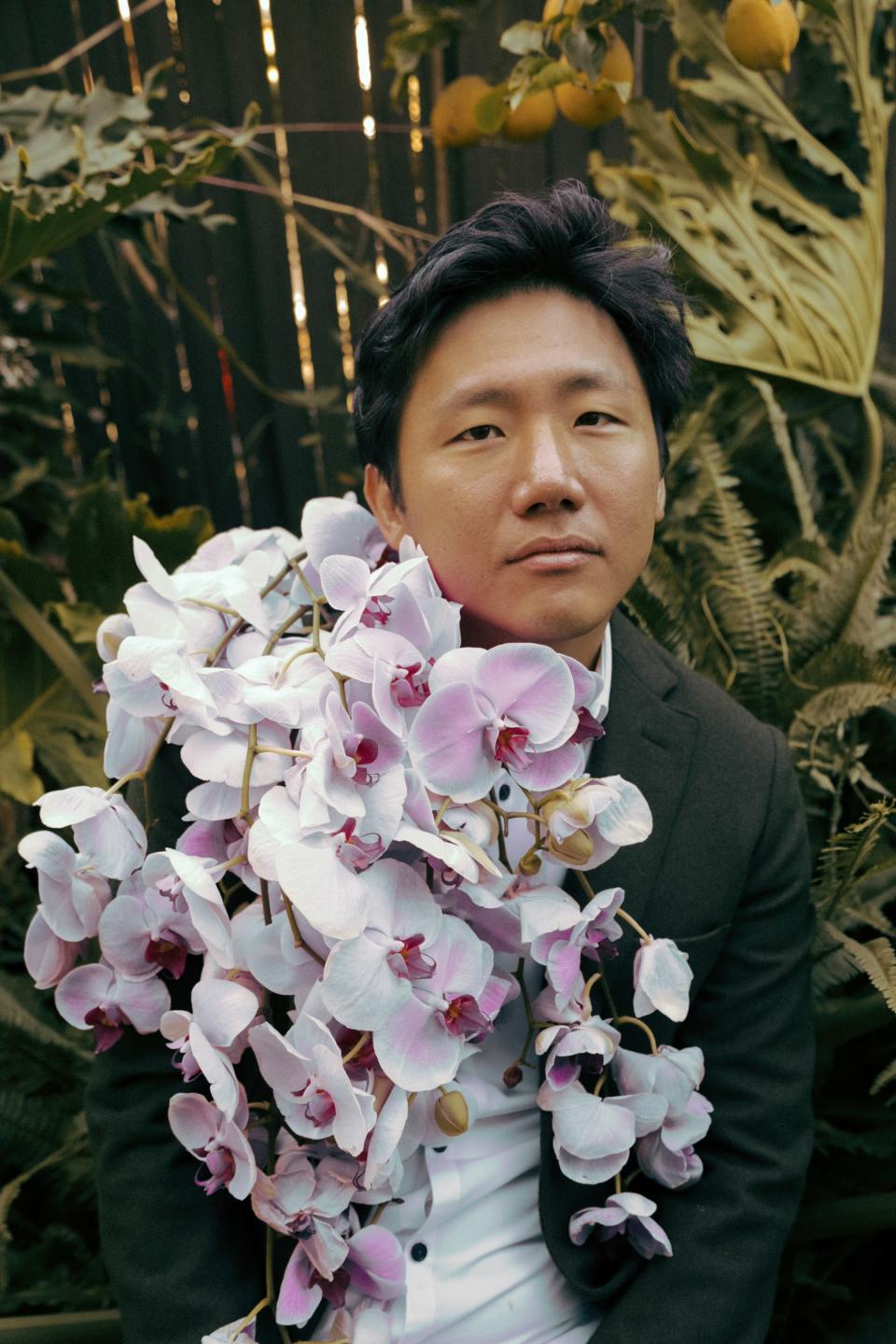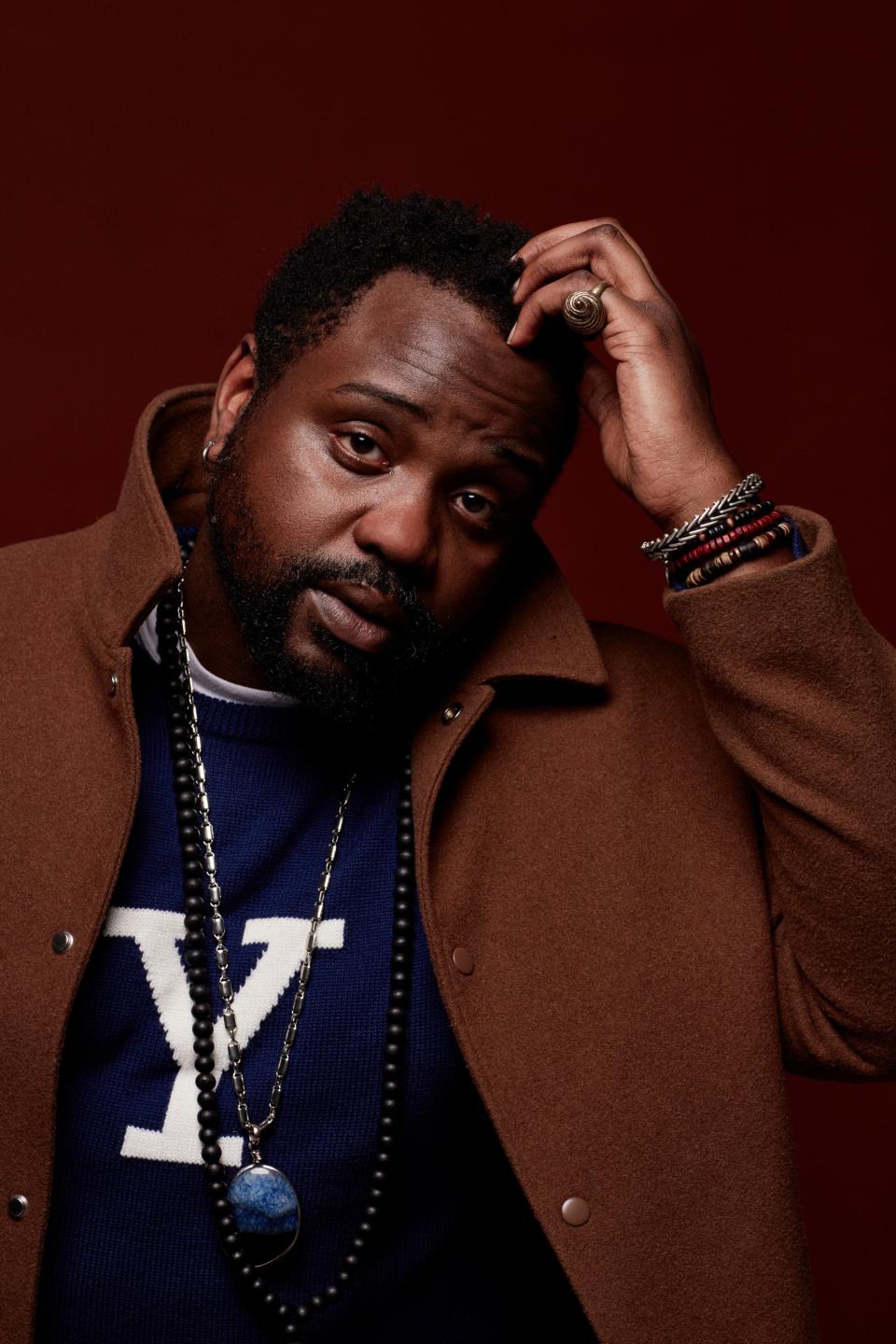Atlanta Robbin' Season Lets Hiro Murai Embrace the Weirdness of Real Life
If there's one thing we can all agree on, in the bizarro timeline that is 2018, it's that life is plain weird these days. That existential strangeness gets under your skin, despite how often people tend to ignore it. But Hiro Murai embraces it—always has. He's a master collaborator in his own right, having created haunting visuals for everyone from Frank Ocean to St. Vincent, but Murai and Donald Glover bring out the best in each other. Since their first music videos "3005" and "Sweatpants" (both very much within the visual universe of their greatest creation, Atlanta), Murai has been capturing Glover's darkest ideas, pulling on the threads of reality to explore its most chaotic and nightmarish corners. A self-described contrarian, Murai "thrives in the gray areas," where conflicting emotions meet and blend.
This potent combination of perspectives from a creative team almost solely composed of people of color makes for striking television. Only Murai and Glover could so accurately capture the lingering anxiety of "Was that racist?" over the course of entire episodes, rather than one singular moment. Therein lies Atlanta's greatest strength, how it heavily leans into the chaos of the real world, accentuating life's stranger moments, and there's no one more primed to bring that to the screen than Murai.
GQ spoke with Murai about how the darkness of the real life bled into the making of Season Two—and how "it's only going to get weirder" from here on out.
GQ: You come from a background of working in music videos, which is very unique form of collaboration. You have this fully considered piece of art that then gets another fully considered piece of art made around it. Do you think that working in that space prepared you to be more adaptable to these new fields that you're now working in?
Hiro Murai: Absolutely. The fortunate thing for me about starting this show is that I got to be introduced to the TV medium by a familiar element with Donald [Glover]. We'd worked together for about four years before we started the show. Even though the format was new, it felt like we were continuing what we were doing before, which was bouncing ideas off of each other to make something that felt cool and intuitive to both of us.
How was the vibe different when you all started filming Season Two versus Season One?
It was very different. When we made the first season, it felt like we were making it in a bit of a vacuum. We really weren't conscious of how it was going to be received, or how it was going to exist in the world. Obviously after the first season came out, there were a lot more expectations and hype around us. It took us a second to shake that off and find our old rhythm. The show works the best when we all are playing off each other and aren't hyper-aware of how people are going to take it.

The second season is much darker than the first. How did that affect the mood on set?
Well, the darkness of this season is framed around Paper Boi putting out his second mixtape, and there's a lot of hype around his first, and there's a lot of anxiety and expectations around how the industry interfaces, as well as the creative side. It's very much true to all of our experiences making the show. And then obviously politically and socially, especially when we were writing and starting to shoot the show, it was a very tumultuous and weird time that felt very uncertain. So there's that anxiety in there too. It was very much in the air. It gets under your skin.
You can feel that in the way this season has come together. I need to you walk me through the first episode. I watched it with a few other people and when the woman gets out of the car, we all looked at each other and had to pause the episode to process it. How did you decide to lead off with that?
[laughs] I'm happy to hear that. It was 100% Donald. I actually didn't know that's how has was going to start that script off until I read it. We always knew we wanted to do a cold open that didn't involve any of the main players. We're a bunch of contrarians, so we get a lot of satisfaction out of withholding a little bit. We'd waited so long for these characters to come back, there was something interesting to us about starting off the season with characters you'd never met, not knowing where you are in the story. The most important thing for us in that moment was to sell the conceit of Robbin' Season. It was something we thought about a lot, even that first scene. It's so mundane, and sort of hard to track too because they're speaking regional Atlanta-speak, and you don't know who these kids are. We really had fun milking that.
You really feel like you're just dropped Google Maps style into a moment that could only be happening in Atlanta. How did you go about even shooting that scene. Have you worked with gunplay before?
It was a lot. Our schedule is pretty tight to begin with, so to have to do big stunts and things, we're not really built for that. [laughs] But that was what was exciting to us about it, because no one would see that coming from this show. I did recently work on a few episodes of this Bill Hader show Barry, so I had a little bit of experience with gunplay and stunts, but other than that, we just leaned on the stunt guys and the people who knew what they were talking about as much as possible.
The actor talks to us about his return to Atlanta, Paper Boi, and being robbed of everything you hold precious.
Continuing with that episode...was that a real alligator?
It was 100% real. We had these wranglers who came up from Florida, who drove this jet-black van. I mean the weird thing about having an alligator on set is that you can't be in the direct line of sight, or they might start charging at you. So we all had to sort of hide behind our tents and watch it through the monitors and peek out to see if we could catch a glimpse of the real thing. I mean, it's an alligator! It's not a trained animal [laughs] And we're trying to get it to do very specific things like "go out this door," and "turn left." So every time it charged the other way, the wranglers would come in and pick it up by its tail and reset it. We just kept doing it until it sort of did what we wanted it to do.
So how did Katt Williams get involved in playing Earn's washed up, alligator owning uncle?
I think Donald had always imagined Katt in that role, and had written that script in mind, but was never super vocal about it. So we still went through the regular casting process and then he just threw it out as an aside. At first I didn't take him seriously because it seemed like such a random thing to pull out of the air. But the more we talked about it, the more we got excited about it, and it all just clicked. A lot of the things in the script were directly reflecting Katt's life as well, and in retrospect it was clearly written for him. Katt really clicked in too. He knew exactly what he needed to be. We wanted to play with his iconography, but also get a grounded, real, human version of his persona.
Let's talk about Episode Two. This moment where Paper Boi gets robbed by his very apologetic drug dealer is both tragic and also hilarious. Have you ever been robbed?
I've never been robbed in person, but I've gotten my car broken into a couple of times. Unless I blocked it out of my memory. [laughs]
That really is one of my favorite scenes from the season. To me, it encapsulates what the show does really well—something that feels real and dangerous, but also milking the gray areas. It's a robbery, but you also feel like this dude is robbing Paper Boi out of desperation. There's even some compassion for the robber in a weird way. We keep saying that this show thrives in the gray areas, and that scene is just all gray.

Atlanta captures the weirdness of life so well. It's the little nuances of real-life experiences that make it into the show that get left out of more traditional dramas. What always gets me in particular is the way that you all capture the horrible nuances of racism and white supremacy.
We always talk about how obviously there is still very in-your-face aggressive racism. But there's a lot of passive racism that, in the moment, you don't even realize is racist. You chalk it up as a strange interaction you had, and then you look at the context of it later on and realize the root of it was racism. I don't think that latent racism gets talked about enough. It's such a weird feeling to be in it in the moment because you can't categorize this interaction in any other way. It feels like a blockade between you and this other person. Episodes Two and Three especially are focused on the micro-transactions between people, and how a lot of racism isn't overt.
There's very little, "Look! This guy said a racist thing!" in the show. The way you breadcrumb these microaggressions throughout is very effective in building up lingering anxiety.
From the very start of the first season, Donald's big thing was that we didn't want it to be a quote unquote "important show." We didn't want it to be a soapbox to stand on and just preach about racism. We wanted it to be very subjective and experiential. It's not about having an objective view on racism. It's about having empathy for these characters that are going through this very specific life.
To keep on that note, I would love to hear about your experience in this industry as a Japanese American. There is such a dearth of visible faces of Asian descent, especially in director and executive producer roles. Have you ever felt isolated moving through this industry?
I think because I'm a first generation immigrant, there's always been a sense that I'm on the outside looking in, so it's hard to look at my situation objectively and see what it it would be like if I wasn't. But that is something I've very much noticed. When we were in the room for the Golden Globes, I look around and it's just me and Alan Yang. [laughs]. And obviously that's very odd. It's a weird to even grow around not that many people that look like you. I grew up listening to hip hop and embracing black culture, probably because it was "outsider art." I didn't have any culture of my own to cling onto in America, you know? There's a big renaissance of black culture of black culture crossing over to the mainstream right now. There's a lot of talk about representation, and I'm realizing more and more that if I saw more people like me on screen when I was growing up, that would've done wonders for me.



